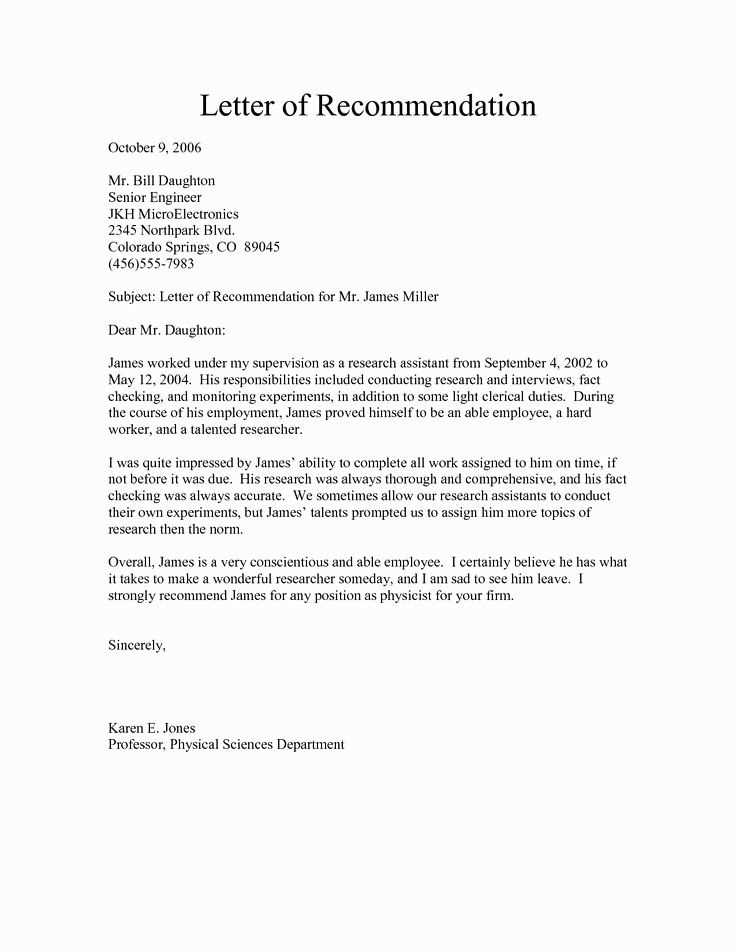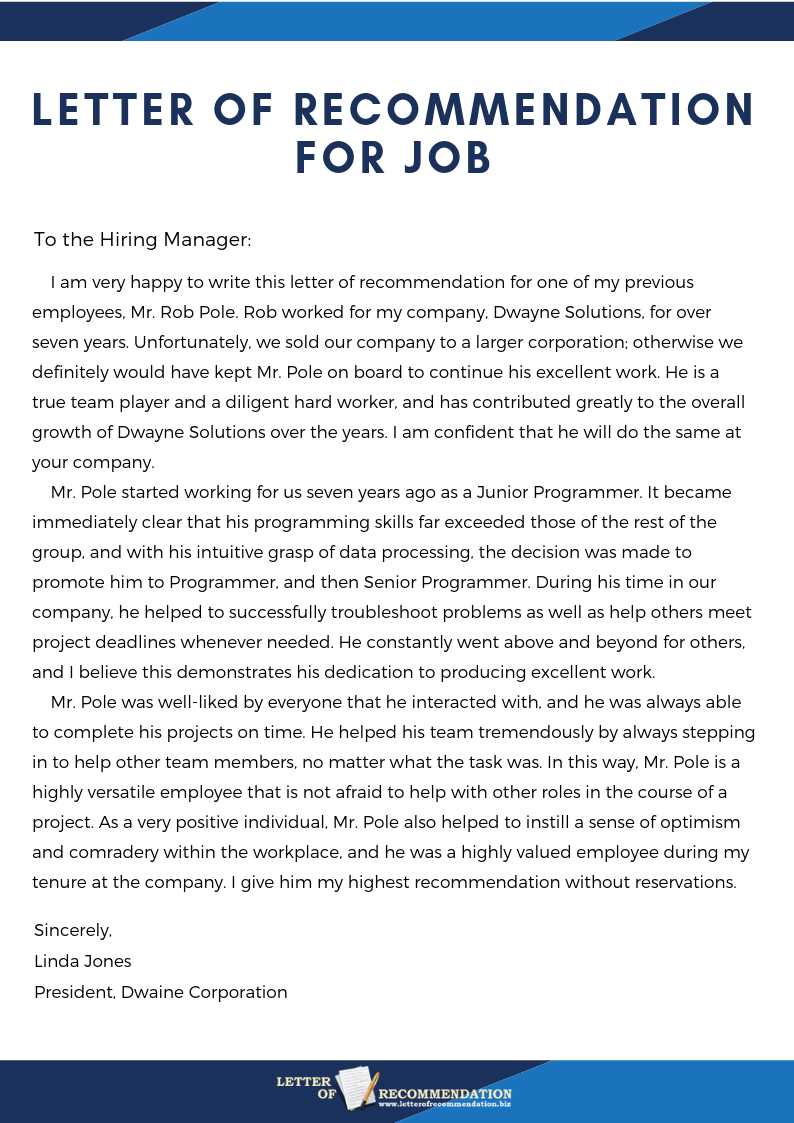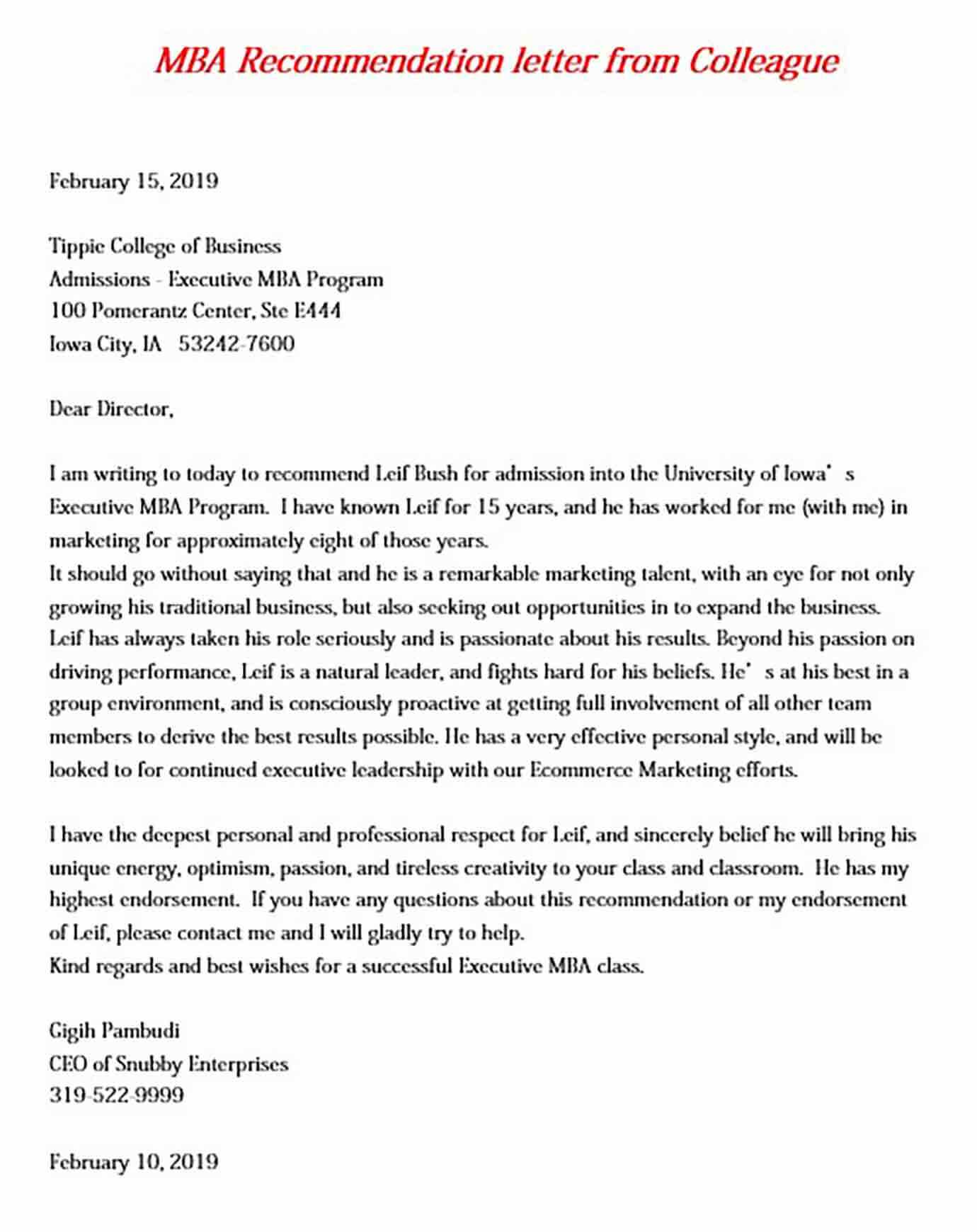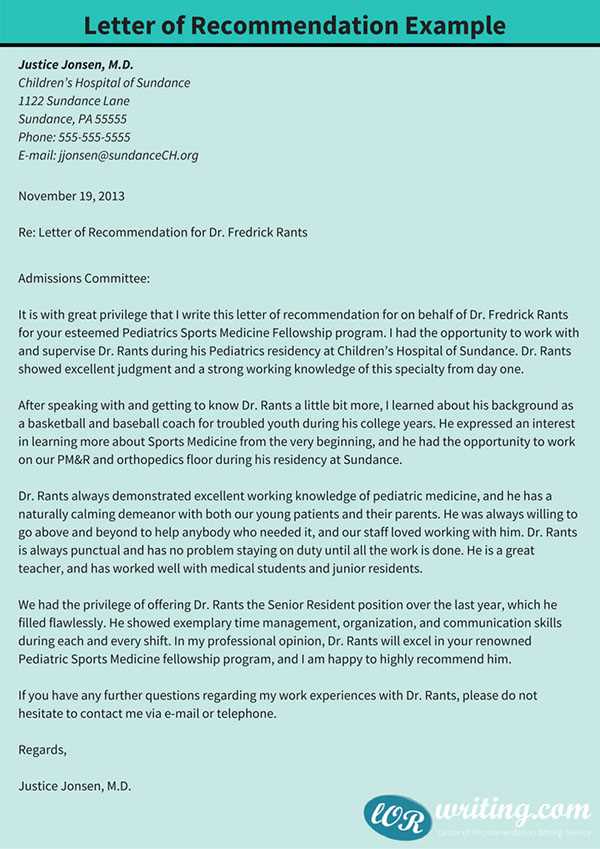Template Letter of Recommendation for Different Purposes

When writing a formal endorsement, it’s essential to ensure that the structure is clear and the content persuasive. A well-crafted reference can play a crucial role in helping someone stand out in a competitive environment. This type of written support is often required for various professional or academic opportunities and must effectively convey the qualities and skills of the individual being praised.
In this guide, we will explore how to construct an impactful reference that highlights the strengths and achievements of the person it supports. We will also discuss the key components to include and how to adapt the structure for different circumstances, ensuring your endorsement leaves a lasting impression. Whether for a job, scholarship, or volunteer position, understanding how to frame these endorsements can significantly improve the chances of success for the applicant.
Understanding the Importance of a Reference
Providing a formal endorsement is an essential part of many professional and academic processes. It offers a means of validating an individual’s capabilities, character, and potential to others. This written support carries weight because it comes from a trusted source and helps decision-makers form a clearer view of the candidate. Whether for a job application, educational opportunity, or volunteer role, a strong endorsement can influence the outcome significantly.
Why Strong Endorsements Matter

A compelling recommendation has the ability to make a candidate stand out from others in a highly competitive environment. It provides a unique perspective on their abilities, often revealing qualities not easily seen in a resume or application form. Some of the key benefits include:
- Offering credibility from a trusted source.
- Highlighting specific achievements and contributions.
- Demonstrating the individual’s impact and potential.
How to Maximize the Impact
The effectiveness of an endorsement lies not only in what is said but also in how it is presented. For it to have the greatest impact, the endorsement should be:
- Personalized to the individual and their experiences.
- Specific about the skills and qualities that set them apart.
- Clear and concise, avoiding unnecessary details that may detract from the main points.
How to Structure a Reference
When composing a formal endorsement, the organization of the content is just as important as the message itself. A well-structured document ensures that the key points are conveyed clearly and effectively. Each section should focus on specific aspects of the candidate’s qualifications, providing a comprehensive view of their strengths and suitability for the opportunity at hand.
To create a strong reference, consider dividing the content into several distinct sections:
- Introduction: Start by introducing yourself and explaining your relationship with the individual. This establishes credibility and context.
- Skills and Qualities: Highlight the candidate’s key attributes and abilities that are most relevant to the position or program.
- Achievements: Provide specific examples of their contributions or accomplishments to showcase their impact.
- Closing: Conclude by reinforcing your endorsement and offering to provide further information if needed.
This structure allows the reader to easily navigate through the document and understand the candidate’s strengths in a logical flow.
Tips for Writing a Strong Endorsement
Crafting a persuasive endorsement requires attention to detail and a focus on what makes the individual truly stand out. A compelling endorsement not only provides an honest assessment but also highlights the unique qualities that make the person a strong candidate for the opportunity. Here are some key tips for making your endorsement both impactful and effective.
Be Specific and Provide Examples
General statements often lack the impact needed to grab attention. Instead, provide concrete examples that showcase the individual’s strengths and accomplishments. Whether it’s a specific project or a notable achievement, these examples offer tangible proof of the person’s abilities.
Focus on Relevant Skills
Ensure that the qualities you highlight align with the requirements of the position or program. Tailoring the endorsement to emphasize the skills most relevant to the opportunity shows that you understand what the candidate brings to the table and how it fits the needs of the organization or institution.
Key Elements to Include in the Endorsement

A well-crafted formal endorsement should contain several key elements that ensure the message is clear, persuasive, and professional. These components help structure the content in a way that highlights the candidate’s strengths while maintaining focus on the purpose of the endorsement. Each section plays a vital role in building a strong case for the individual’s qualifications.
Introduction of the Author: Start by briefly introducing yourself and explaining your relationship to the candidate. This provides context and establishes your credibility as a reference. Make sure to include your position and how you know the individual.
Candidate’s Strengths: Focus on the specific qualities and skills that make the candidate stand out. Be sure to address aspects like their work ethic, problem-solving abilities, and interpersonal skills that are relevant to the role or opportunity.
Key Achievements: Include concrete examples of the candidate’s contributions or successes. This can be a specific project, task, or instance where they demonstrated exceptional performance. Specific accomplishments add weight to your endorsement and give the reader a clear picture of the candidate’s impact.
Conclusion: Finish by reaffirming your endorsement. Summarize why the individual is a strong fit for the opportunity and offer to provide further details if necessary. This section should leave a lasting impression of support and confidence in the candidate’s abilities.
Common Mistakes to Avoid in Endorsements

While crafting a formal endorsement, it’s essential to be aware of common pitfalls that can undermine the effectiveness of your support. Even small mistakes can have a significant impact on how the candidate is perceived. Avoiding these errors ensures that your message is clear, professional, and persuasive.
Being Too Vague: General statements or overly broad praise often fail to convey the candidate’s specific strengths. It’s important to focus on concrete examples and provide details that demonstrate the individual’s abilities in action.
Exaggerating or Overpromising: While it’s important to emphasize the candidate’s strengths, it’s equally important to remain truthful and realistic. Overstating their capabilities or making promises that can’t be backed up can lead to a loss of credibility.
Focusing on Irrelevant Qualities: Tailor the content to the position or program the candidate is applying for. Highlighting traits or experiences that aren’t related to the specific opportunity may make the endorsement seem unfocused and less convincing.
Being Too Brief: While conciseness is key, a lack of detail can make your endorsement feel impersonal or insufficient. Take the time to properly articulate the individual’s accomplishments and why they’re a strong candidate.
Common Mistakes to Avoid in Endorsements
When crafting a formal endorsement, it’s essential to avoid common pitfalls that can weaken your message or fail to fully support the individual you are vouching for. Certain mistakes can detract from the effectiveness of your support, making it less compelling or even causing confusion. Being aware of these errors can help ensure that your endorsement remains strong, clear, and persuasive.
One major mistake is offering vague or overly general statements. While it’s important to express your support, without specific examples or detailed descriptions, your message lacks the weight needed to make a true impact. Instead, focus on concrete achievements and personal qualities that set the individual apart.
Another common error is writing an endorsement that doesn’t align with the position or opportunity the individual is pursuing. Make sure that the skills and qualities you highlight are directly relevant to the role or purpose at hand. Tailoring the content ensures your endorsement resonates with the decision-makers reviewing it.
Additionally, being overly effusive or exaggerated can be counterproductive. While it’s crucial to express genuine enthusiasm, it’s equally important to maintain professionalism and credibility. Avoid making claims that may seem too lofty or unrealistic, as they can undermine the authenticity of your support.